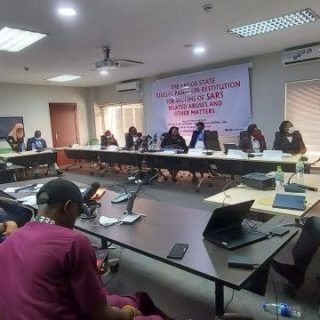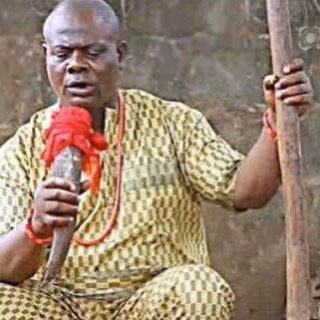Rivers VAT not for Abuja people, I don’t care if heaven falls!”, Wike insists.
If you’re wondering why governors seem to be in a stand-off with the federal government, we have the tea. The situation is about a type of tax called Value Added Tax (VAT) and which level of government has the power to collect it — the Federal Government of Nigeria or the state governments.
Whoever wins this battle is certainly going to get richer by about ₦1.5 trillion.
The Federal High Court Ruling
On August 10, 2021, in a lawsuit marked FHC/PH/CS/149/2020, Justice Stephen Dalyop Pam of the Federal High Court ruled that it is the Rivers State Government, not the Federal Inland Revenue Service (FIRS), that should collect Value Added Tax (VAT) and Personal Income Tax (PIT) in Rivers state.
The judge granted all of Rivers State’s requests over the matter, and it agreed with the state’s argument that the Federal Government of Nigeria, through the FIRS, cannot collect VAT because it does not have the power to do so under items 58 and 59 of the “Exclusive Legislative List” of the Constitution and items 7 and 8 of the “Concurrent Legislative List” of the Constitution.
The Federal Government of Nigeria has been collecting VAT across Nigeria since 1993, but Rivers State has basically said “enough”.
What Is VAT?
The Value Added Tax is a tax
In Nigeria, VAT is charged on all goods and services except on medical products, basic food items, books and educational materials, baby products, fertilizers, farming machinery, medical services and a few other goods and services in the first schedule of the VAT Act.
Nigerians pay a 7.5% VAT on everything we buy, including recharge cards, wines, cars and many other things.
What This Means
VAT is the second-highest generating tax in Nigeria after the Companies Income Tax, and Nigeria made about ₦1.5 trillion from VAT in 2020 alone. But it is not the amount of money that is provoking emotions, it is the way the money is shared.
Under Section 40 of the VAT Act, 15% of the VAT pool must go to the Federal Government, 50% to the states and 35% to the Local Government. 20% of the entire money must also be shared according to where they are gotten from.
But Rivers State is not happy with this arrangement. According to the governor, Nyesom Wike, the state generated ₦15 billion from VAT in June 2021 but only got ₦4.7 billion when the VAT pool was shared according to the current sharing formula, whereas Kano State generated ₦2.8 billion naira from VAT in June 2021 and got the same ₦2.8 billion naira it made.
If states begin to collect their own VAT following the new court ruling, it would mean that every state in Nigeria gets to keep the VAT money it makes, and states like Lagos, Rivers, Oyo, Kaduna, Delta and Katsina where up to 80% of VAT is collected will get to keep their fair share without giving it to the federal government.
Rivers State, for instance, would be able to keep its VAT money and use it to develop the state, something in the range of the ₦15 billion it generated from VAT in June 2021 alone. Already, Lagos State House of Assembly has passed the state’s VAT law to ensure that it starts keeping the VAT money it makes.
But there’s also a downside to it. Many states who don’t make as much money from VAT rely on the national sharing pool. Because Nigeria’s 36 states and 774 local governments all share 85% of the total VAT money, it means that many states get allocation from the VAT pool even though they contribute less than 20% to it. This is the reason why Gombe’s governor has pleaded with other states to be their “brother’s keeper,” because if each state begins to collect its own VAT, about 30 states in Nigeria will suffer a significant decline in their revenue. And this is because there is little production and consumption activity going on in those 30 states, so there’s only a little VAT to collect.
The Federal Inland Revenue Service (FIRS), the agency that collects taxes on behalf of the federal government, has already filed an appeal to overturn the judgement of the Federal High Court. We’ll have to wait and see where this case leads. But one thing is certain: the question about who has the power to collect VAT in Nigeria is far from over.




